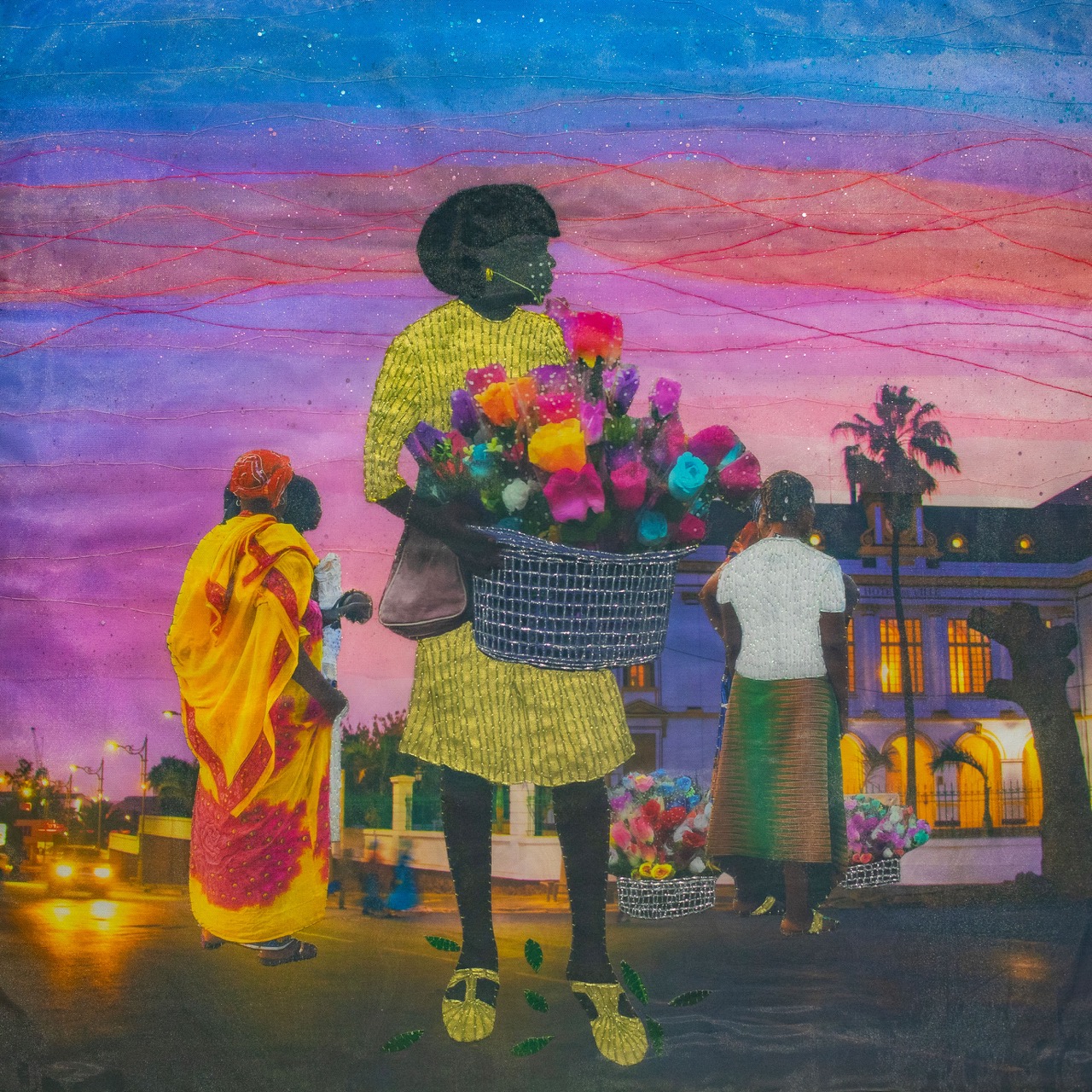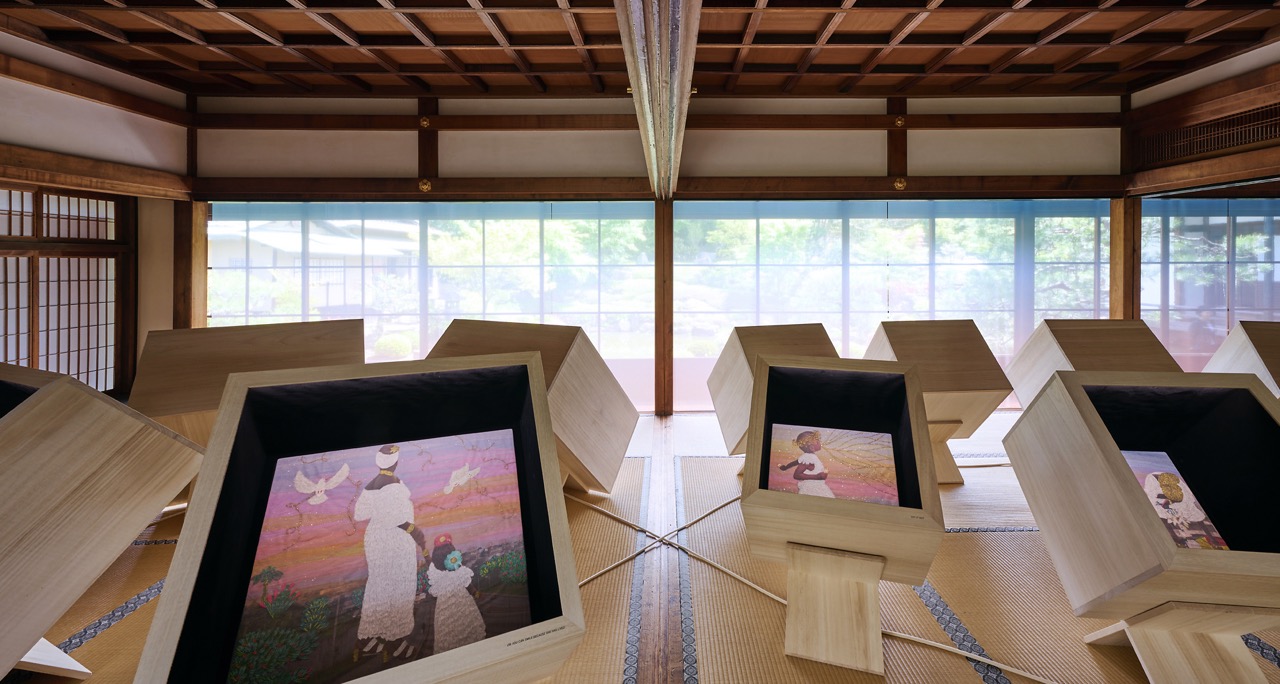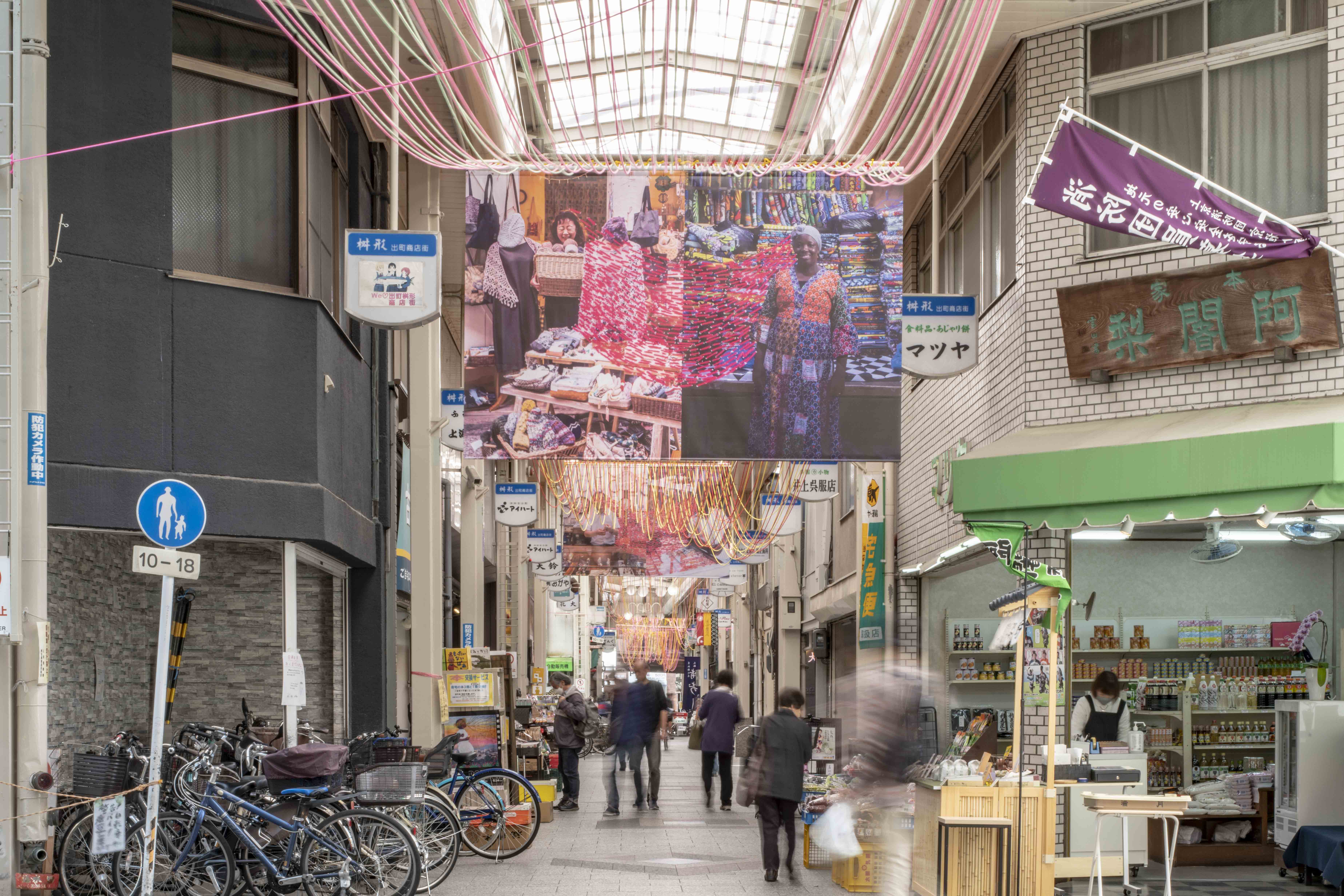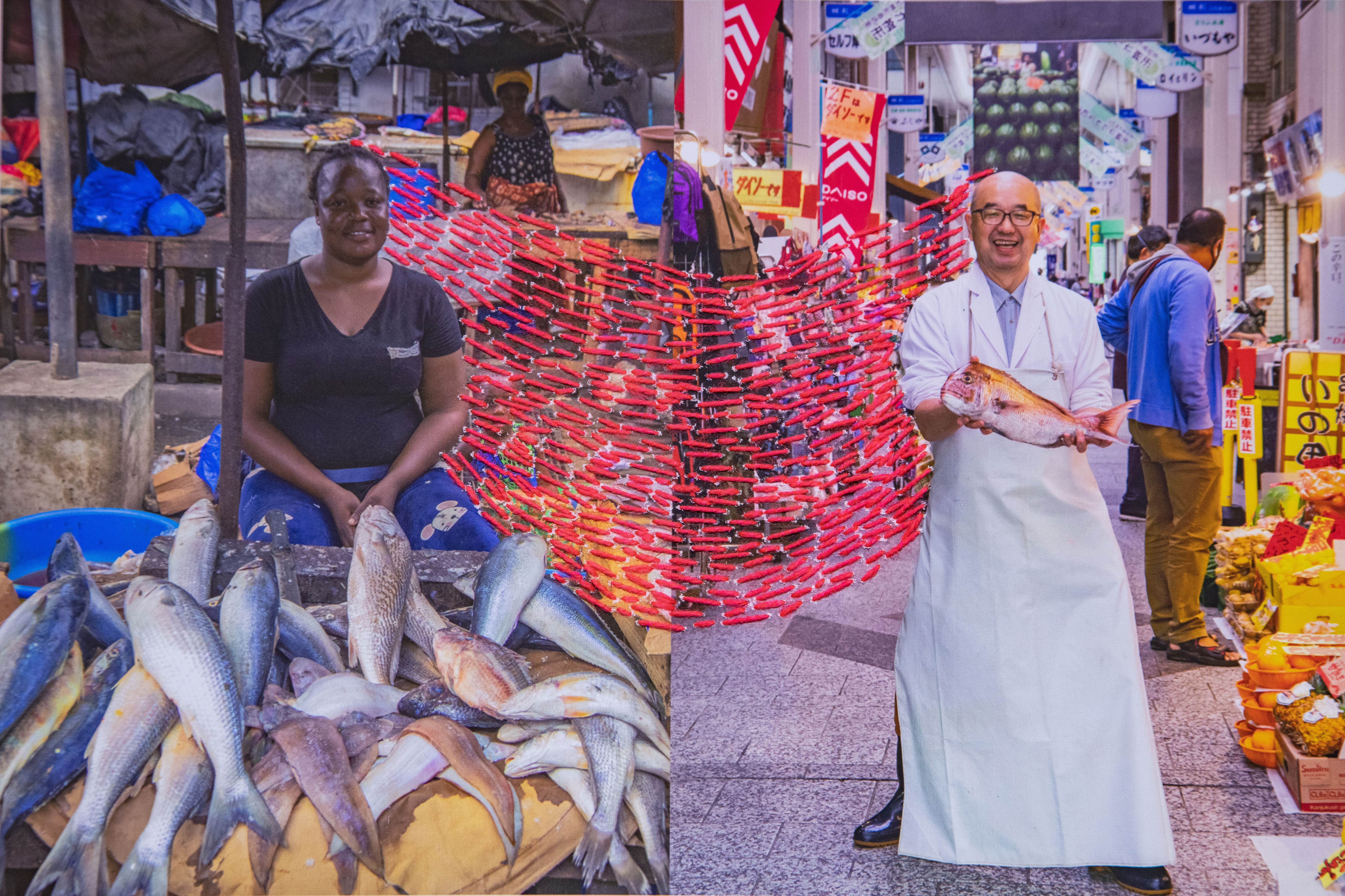At Kyotographie, the International Photography Festival in Kyoto which takes place yearly since 2013 in April and May, this year's African section is dedicated to the work of Joana Choumali. The Ivorian visual artist, the recipient of the Pictet Prize in 2019, presents two series, Kyoto-Abidjan and Alba'hian, with embroidery as a red thread connecting her work.
The same smell of dried fish. When the photographer Joana Choumali entered for the first time one of the stalls of Demachi Masugata shotengai, a small arcade shopping street located north of Kyoto, Abidjan was suddenly not so far away. “This scent immediately brought me back to the market of Treichville, or to parts of the city of Abidjan, by the sea or the lagoon. It gave me a very familiar, comfortable feeling,” she says. In her series Kyoto-Abidjan, the visual artist materializes correspondence between Japan’s former capital and her hometown, Côte d’Ivoire’s capital, where she was born in 1974 and where she is still based. Made especially for Kyotographie (see below), her pictures are also an illustration of this year’s theme, “BORDER”. In her large diptychs hanging from the arcade, she brings the two worlds together by portraying life’s market: retailers from here, and from the market in Treichville, pose proudly. Placed side by side, the border that separates them blurs: the artist underlines their likeness by linking the photos with a coloured thread, creating the illusion of a single image." I wanted to link Kyoto and Abidjan, and that it remains in the memories, it is a form of representation of transculturality as a symbol, which invites us to focus on what connects us, more than what divides us,” says the artist.

Joana Choumali's embroidery is the red thread connecting her latest work, work that is as plastic as it is photographic. “It came from the desire to spend more time with my photos, to add a more personal, instinctive, and meditative layer to the digital,” she says. The texture of the cotton thread embroidered on photos printed on canvas, which transforms the snapshot into a material object, appears first in her Translation series on migration, and then in Ca va aller, her series that received the prestigious Prix Pictet (a global prize that rewards photographers focusing on social and sustainable issues) in 2019. The thread is like a suture, stitching up a wound inflicted by the terrorist attack on the Grand Bassam seaside resort in 2016, which hit the country in the heart.

It is a more contemplative series that the artist presents at Kyotographie, resonating with the meditative atmosphere of the Ryosoku-in Buddhist temple, home of the exhibition. “I couldn't have dreamed of anything better,” admits the artist, standing in the large tatami room that opens onto the temple's peaceful garden. The subdued light is muffled a little more by large panels of pastel taffeta that obscure the windows, as if to reproduce the soft light of African mornings, the focus of her series Alba'hian. With Alba'hian, which means “first light of the morning” in Agni language, Choumali is conducting a long-term work on the sunrise, a special moment conducive for introspection, she says. “It’s like having an appointment with the sun. I have the feeling that everything can start again, that we have a chance to change things every day.” During her early, meditative walks, she photographs those who cross her path. She prints silhouettes and street scenes on cotton canvas, but also reconstitutes some elements of the landscape – such as the sky – with different layers of fabric, to better capture its nuances. In this project, her plastic statement is pushed a little further: the different techniques convey a sensory vision, almost palpable, of her inner world. These works, between dream and reality, can be discovered through a series of small treasure boxes installed on the floor, each one revealing a work of art. Those are like silent icons, accompanying and guiding the artist’s introspection; the visitor’s, too. In the land of the Rising Sun, where she stayed six weeks, Joana Choumali has continued getting up early, “to extendAlba’hian’s field of possibilities in Japan.” Alba’hian will continue to travel. Next destination: La Gallicy Festival, in Brittany, France, from June 1st to June 4th.

Kyotographie, Africa in the spotlight
The Demachi Masugata shopping arcade awakens every spring for the African exhibition. After Omar Victor Diop, Ngadi Smart, and Prince Gyasi, it is the turn of Joana Choumali to grace the place. The African section of Kyotographie echoes the strong ties that photographer Lucille Reyboz, co-founder and co-director of the festival, has with the continent. “I was lucky enough to grow up in Mali and Bamako, and I think this episode of my life has determined many of my choices. It is also Africa that brought me to Japan. I started my career as a photographer by working in the African music field, and in particular with Salif Keita, who was invited to Japan. That's how I discovered the country and settled there. So, when we created the festival with Yusuke Nakanishi, the question did not even arise,” she remembers, “African photography has been honoured from the beginning.”
More info on the festival here.
Aimie Eliot is an independent journalist currently based in Japan, covering cultural, environmental and social topics. She previously worked in Germany and Eastern Africa (Ethiopia and Uganda) as a correspondent for French and German medias.


